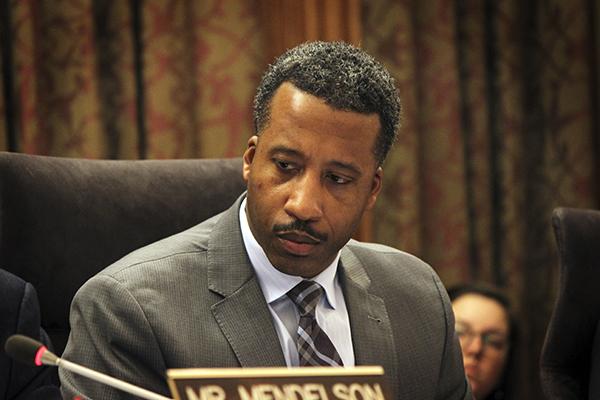The D.C. Council has postponed a hearing for the bill that would allow officers in the University Police Department to patrol off campus.
The hearing was scheduled for March 22, but neighborhood leaders said the hearing could now be delayed until the fall. The bill was proposed in December, about two years after GW officials tried to gather support for a similar initiative, and is the most formal effort so far to expand the role of university police forces in the city.
The hearing was originally scheduled to be on March 17, a time many students would be away for spring break. During a community meeting last month, sophomore Eve Zhurbinskiy, a commissioner for the Foggy Bottom and West End Advisory Neighborhood Commission, argued for a date change for the hearing so that students wishing to speak at the hearing could attend.
Dionne Calhoun, a spokeswoman for Ward 5 Council member Kenyan McDuffie’s office, declined to say why the hearing was rescheduled, but said the Council does not have any updates on another hearing date for the bill. McDuffie proposed the bill, which six Council members also sponsored.
“I’m going to have to find that out from the committee director,” Calhoun said.
The Student Association passed a resolution in January opposing the bill, citing concerns that allowing UPD officers to exercise police powers off campus could reduce the safety presence on campus.
At a meeting in February, community members also asked the D.C. Council to clarify certain parts of the measure, like how the University would track the crimes that UPD officers respond to and which areas are considered on- or off-campus locations.
Marina Streznewski, the president of the Foggy Bottom Association and a longtime Foggy Bottom resident, said she did not think a hearing on the bill would happen before the fall.
She said a representative from McDuffie’s office told her the Council member planned to reschedule the meeting because he needed to prioritize budget oversight hearings. Streznewski said the hearing would likely occur after budget deadlines in June, and after the Council’s summer recess.
Streznewski had been planning a training on March 5 to teach interested community members how to effectively give their testimony to the Council. She canceled the training until the hearing date is announced.
“It’s kind of silly to have the training now and not have people use what they learn until the fall,” she said.
Peter Sacco, an alumnus and the executive director of the ANC, said it’s possible that McDuffie may not reschedule the meeting until the fall given the budget deadlines toward which the Council is working.
“With the budget season, he’s going to be very busy,” Sacco said.







